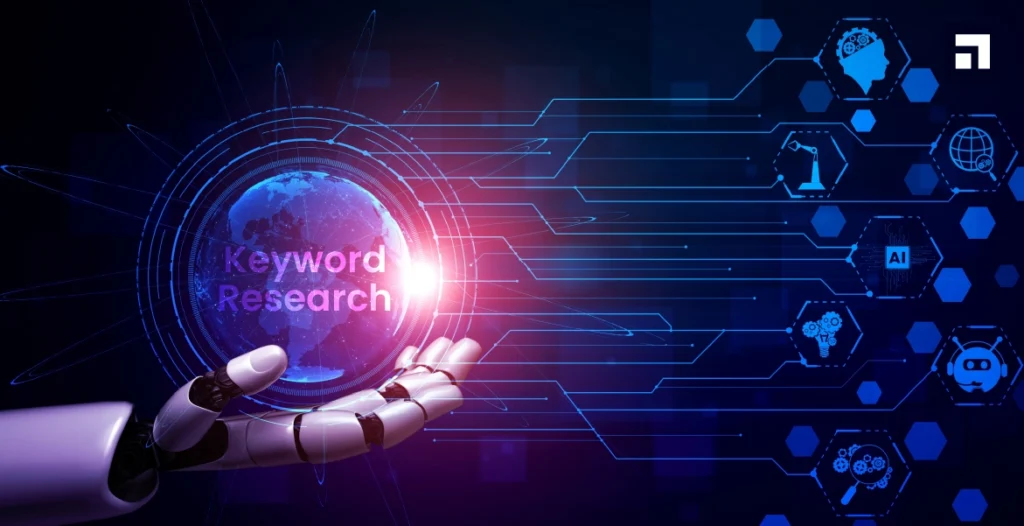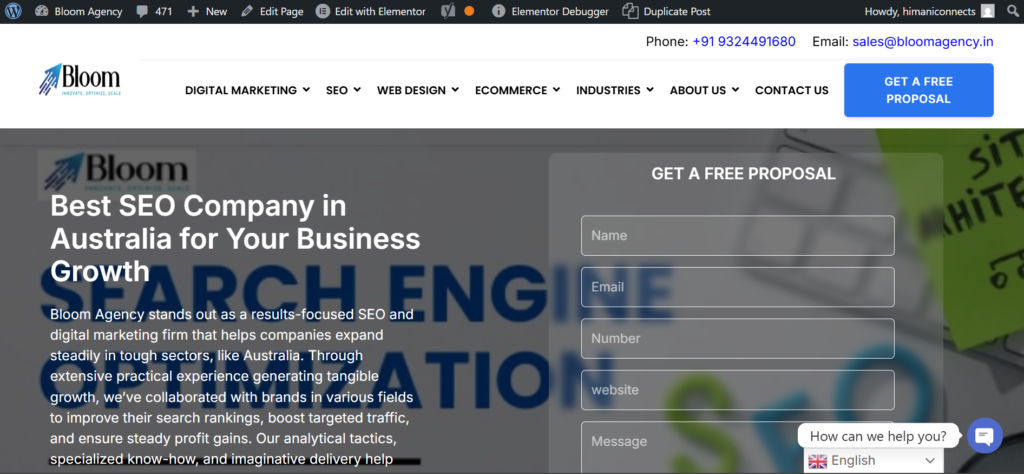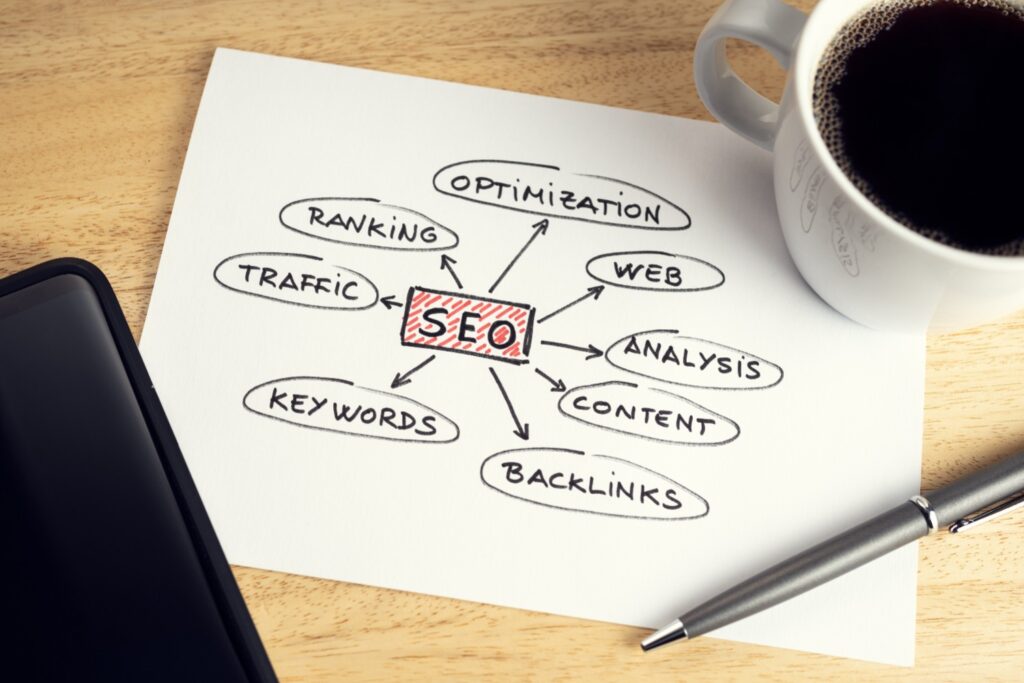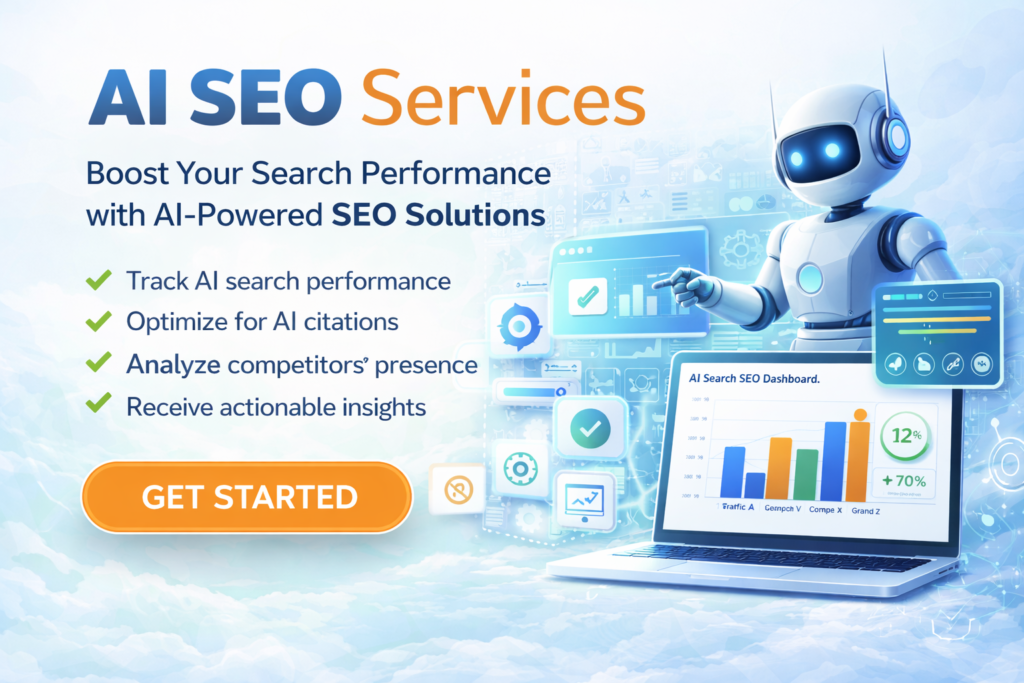AI is going to be the prime force in the world of SEO in 2025. The way businesses would approach search engine optimization would change overnight. From creating content to advanced data analysis, AI is going to help businesses get better rankings, more traffic, and higher engagement. With more competition in SEO, AI will help you stay ahead of the game. Here are three effective ways you can use AI for SEO wins in 2025:
Table of Contents
Toggle1. AI-Powered Content Generation and Enhancement

Content is still the king for SEO, but creating and optimizing quality content takes a lot of time. In 2025, AI tools will evolve to be even more perfect in generating and enhancing the content. Here’s how you can utilize AI on this area:
1. AI Content Generation Tools
GPT-4 and Jasper AI will be key players in SEO for 2025. These tools can output blog posts, articles, product descriptions, and many types of content in a matter of minutes that a human might take hours to complete. When the algorithms get even stronger, AI will create relevant content that is not just grammatically correct but even contextually accurate and closer to the user intent as well.
But the best thing is that AI-generated content is not going to replace human creativity. On the contrary, using AI as a starting point and fine-tuning the content with your unique voice will yield the best results. AI can also help in content repurposing by converting long-form articles into shorter summaries, social media posts, or even video scripts.
2. AI for Content Optimization
AI tools can also help to optimize content for SEO through keyword suggestions, readability, and completeness. For example, Surfer SEO, Frase, and Clearscope use AI to analyze top-ranking pages for any keyword and suggest semantic keywords or LSI (Latent Semantic Indexing) terms that should be included, thus ensuring your content ranks for the primary keyword and related terms.
In 2025, AI-based content optimization tools will be inescapable to target multiple long-tail keywords, understand search intent, and provide content suggestions aligned with the latest trends in the market.
3. NLP and SEO
NLP algorithms, a subfield of AI, have already significantly improved the way search engines understand user queries. For example, Google’s BERT and RankBrain represent this technology. In 2025, NLP will continue to improve how search engines parse and rank content.
AI can help with SEO by breaking down the content structure to ensure it adheres to the standard pattern of the top-ranking pages. It does this by using the right headings, bullet points, and injecting natural language that mirrors the way people phrase their searches.
2. AI for Advanced Keyword Research and Competitor Analysis

Keyword research will be the basis of search engine optimization. In 2025, AI will take this core task into a new dimension by helping businesses not only discover keywords but also by tracking the trends, predicting future performance of keywords, and making them outsmart their competitors in the game.
1. AI-Powered Keyword Discovery
AI will help SEO professionals discover keywords with high search potential, even those that competitors might have missed. Tools such as SEMrush, Ahrefs and Moz already employ AI to recommend keywords based on search volume, difficulty, and intent. By 2025, these tools will be able to provide even deeper insights, such as predicting search trends and identifying emerging keywords before they become mainstream.
AI will also be used in finding keywords for local SEO. This will be crucial for businesses targeting specific regions or cities in 2025. AI will analyze the search behavior of users depending on their geography and optimize content to attract a certain local audience.
2. Competitive Intelligence Through AI
Competition will need to be outsmarted by SEO experts in the fast world of SEO. Businesses will benefit from AI by carrying out competitor analysis more effectively. AI-driven tools will look into competitor websites, backlink profiles, and even content strategies. Businesspeople will be able to determine what is working for competitors and find new areas to optimize.
For example, an AI tool can show you keywords which your competitors are ranking but not you, or could assist in finding which links to their site are yielding the most traffic. Through all these, you’re well positioned to change tact according to what you understand with such information.
3. Predictive Analytics for SEO
The most exciting potential of SEO in 2025 is probably predictive analytics, powered by AI. It can process massive data sets and predict which keywords and SEO strategies will create the most traffic over time. Using historical data and analyzing user behavior patterns, AI tools help SEO professionals predict shifts in search trends to get businesses ahead of targeting the next big keyword.
3. AI-Powered User Experience (UX) and Technical SEO Enhancements

User experience (UX) becomes another ranking factor for the search engines. In 2025, AI will take all the more important parts to improve UX and makes technical SEO more efficient:
AI for Website Personalization
AI will help enhance the user experience with personalized content on the websites. By using machine learning algorithms, AI can monitor the data and behavior of users in real time to deliver a tailored experience for each visitor. It includes personalized product recommendations, location-based content, and dynamic CTAs.
This will not only enhance UX but also enhance the engagement metrics of time spent on site, bounce rates, and conversion rates-things that are important to SEO. The more appealing the experience a website can offer, the more that search engines such as Google favor it. AI has much to do with it.
AI for Technical SEO
Technical SEO is the process of making sure that your website is optimized on the backend side, so it is correctly ranking in the search engine. AI tools will automatically complete many tedious technical SEO tasks, including:
– crawlability and indexing issues: through AI-driven tools crawl the website, detect broken links, and can also resolve issues that could make a search engine not index the pages properly.
– Page Speed Optimization: AI tools can analyze your site’s speed and recommend improvements, such as image compression or script optimization, that reduce load times.
– Schema Markup: AI can help in generating schema markup that helps search engines understand content on your pages better. This can result in rich snippets, which improve click-through rates and overall rankings.
With AI, optimization experts will also be able to benefit from the mobile optimization, site structure analysis, and core web vital improvements-which are fundamental in ensuring SEO success in 2025.
Conclusion
AI is transforming the whole SEO landscape to make it more efficient, intelligent, and data-driven. Embracing AI in content development, keyword research, and technical SEO in 2025 will help businesses a lot in gaining competitive advantage. AI can automate tedious, time-consuming tasks, unfold valuable insights, and lead to a better user experience, resulting in higher ranks and better outcomes. The evolution of the digital landscape is going to put all the power in the hands of those who master the application of AI in their SEO strategy. So, go ahead and make your mark on the top rank list with a little less effort and great precision by implementing AI into your SEO strategy.
About Us
Want to up-scale your space in the highly competitive market ? With Bloom, you get Ecommerce SEO Services tailored exactly for you to get your business ranked higher and attract more local leads that will convert into more sales. We provide different SEO solution such as Local SEO ,Technical SEO ,Enterprise SEO ,Franchicse SEO ,WordPress SEO , Amazon SEO etc.
At Bloom Digital Marketing Agency, we specialize in delivering whole web design services in India to meet diverse business needs. From their great website design to optimizing your websites for search engines, our expertise will take your brand to the maximum level possible online.








Rahul M.
B2B Service Provider